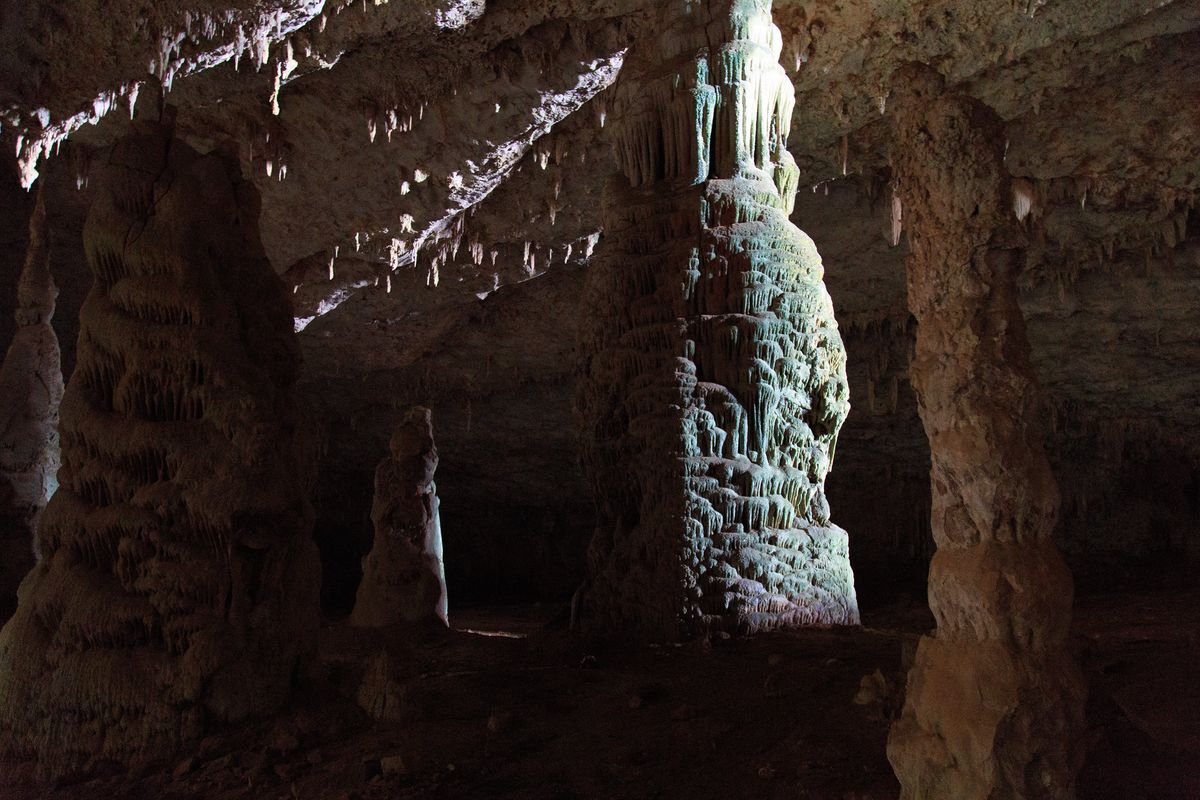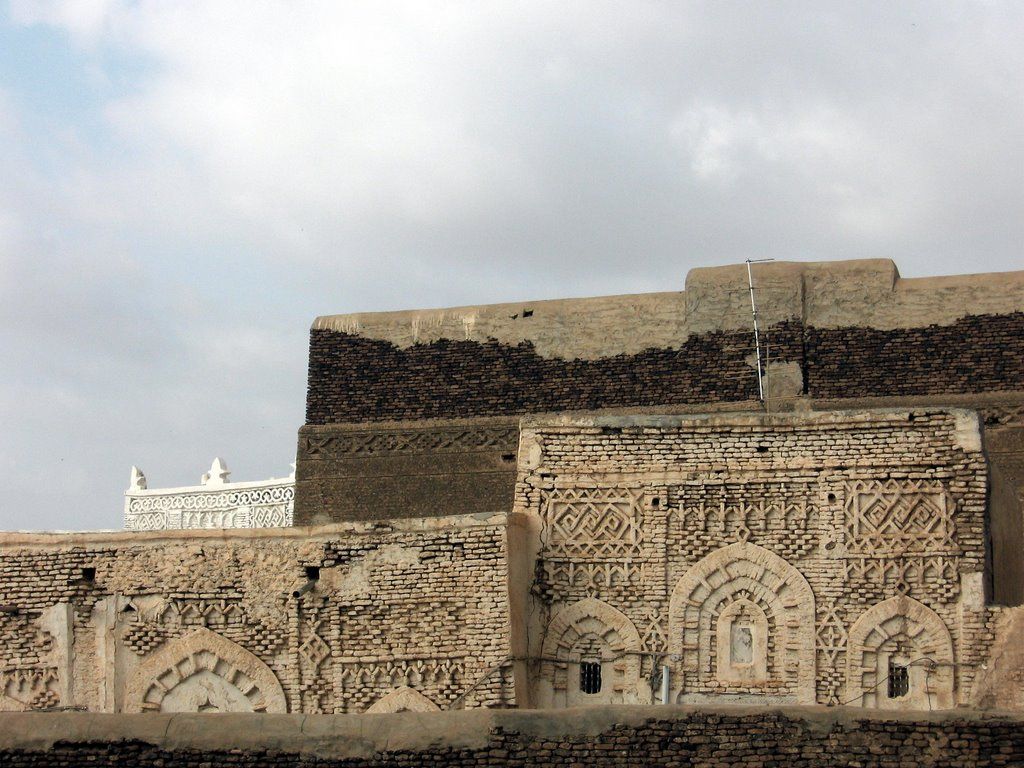Wondermondo 🢖 World 🢖 Wonders of Asia 🢖 Wonders of Yemen
Territory
Wonders of Yemen
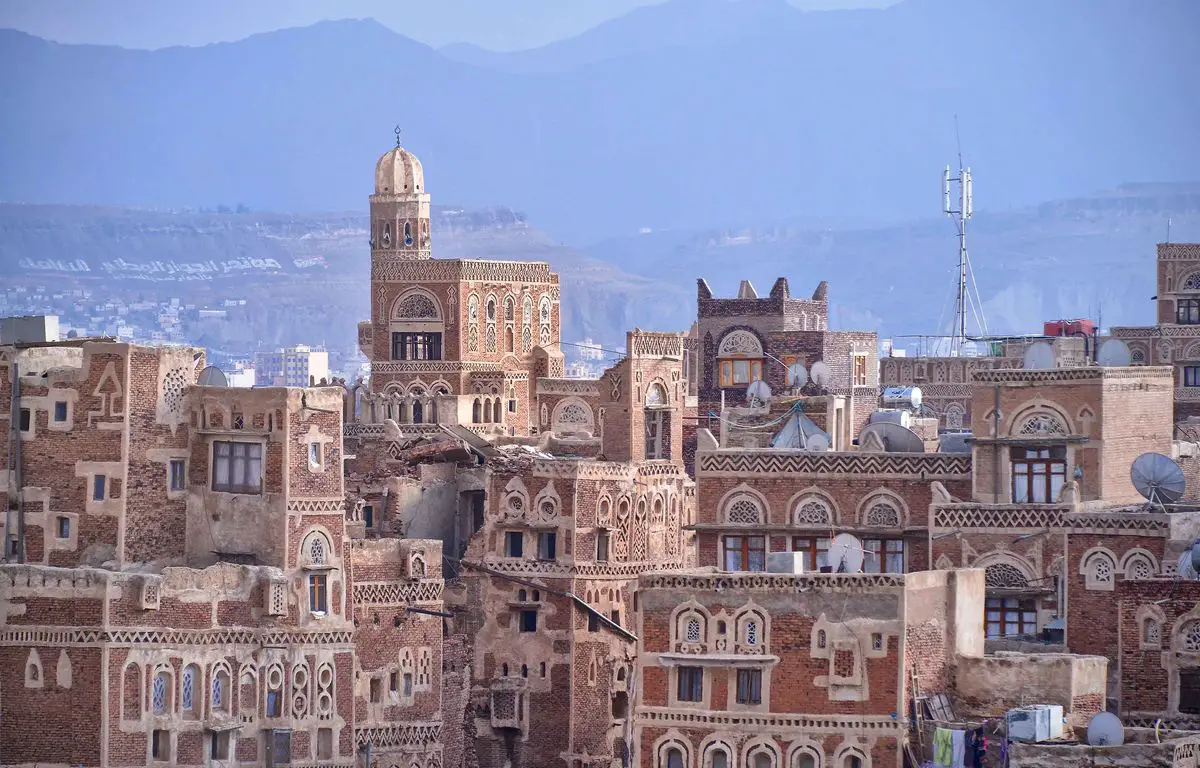
 Highlights
Highlights
The most exotic country in Arabian peninsula is Yemen. Many peculiar wonders are found in Yemen but the most interesting ones are:
- Medieval cities. The unique historical cities of Yemen are characterized by very tall buildings (up to 16 floors) with unusual ornamentation. Most impressive examples of this striking style in urban planning are Shibam and Old City of Sana’a – but nearly all medieval villages and towns in Yemen are surprising.
- Archaeological monuments. Several large cultures of antiquity evolved in Yemen, such as Sabaean and Himyarite Kingdom and others. Ruins of ancient cities, temples and, notably, giant dams exist up to this day and the most notable are Great Dam of Ma’rib and the ancient temple – Mahram Bilqis.
- Natural heritage of Socotra Island. This remote island is a treasure trove of unusual life forms. Some of the most unusual ecosystems in the world are stands of Dragon’s Blood Tree, such as the grove named Rokeb di Firmihin.
Map with the described wonders
If you see this after your page is loaded completely, leafletJS files are missing.
 Top 25 wonders of Yemen
Top 25 wonders of Yemen
Geological wonders
Hoq Cave
Soqatra
Comparatively large, approximately 3 km long cave with beautiful stalactites and stalagmites, endemic cave fauna. In the cave have been found ancient ceramics, cave art, and wooden tablet with writings dated from 258 AD. Writings on the walls of the cave have been left by Arabs, Indians (Brahmi script), and Greek.
Bir Ali
Shabwah
Volcano with a crater lake with unusual, green water.
Biological wonders
Rokeb di Firmihin
Soqatra
The best and last forest of some of the most unusual-looking trees in the world – Dragon’s Blood Tree (Dracaena cinnabari).

Jabal Bura forest
Al Hudaydah
One of the last subtropical forests in Southern Arabia, located in granitic mountains. Forest has five altitude zones. Here are found numerous endemic plants.
Archaeological wonders
Zafar
Ibb
Remnants of a prehistoric city that was founded in the 2nd century BC or earlier and abandoned in the 6th century AD. The former capital of Himyarites in the 1st century BC – 6th century AD. The site includes rock-cut tombs. Fortification walls were some 4 km long.
Ghumdan Palace
Amanat Al-Asemah
The remaining part of the ancient fortified palace of Sana’a, built in the 3rd century AD or earlier. The tower of the palace once had many (up to 20?) floors and could be the world’s first skyscraper. The architecture of the palace influenced the architecture of city houses in Yemen. Now just ruins remain.
Baraqish
Al Jawf
This ancient city was built before 450 BC, the capital of the Minaean kingdom in the 4th century BC. The city was abandoned in the 1960ies and now there are ruins over an artificial hill consisting of the cultural layer. Parts of the ancient, 14 m tall city walls still exist.
Great Dam of Ma’rib
Ma’rib
One of the engineering wonders of the ancient world, built in the 8th century BC or earlier. The oldest known dam in the world. The original dam was 580 m long and 4 m high, later it became larger. There are also other ancient dams of similar age nearby. Dam suffered often but nevertheless has left a profound influence on the development of South Arabian civilization.
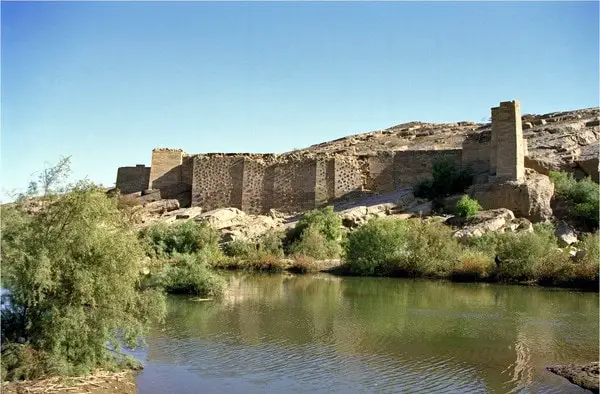
Old Ma’rib
Ma’rib
Ruins of the former Saabean capital city. It flourished in the first millennium BC and a distinct culture developed here – even with specific writing. Near the city are found ruins of Mahram Bilqis or Awwam Temple with a row of rectangular columns. This temple of the Moon-god had a huge importance in the region.
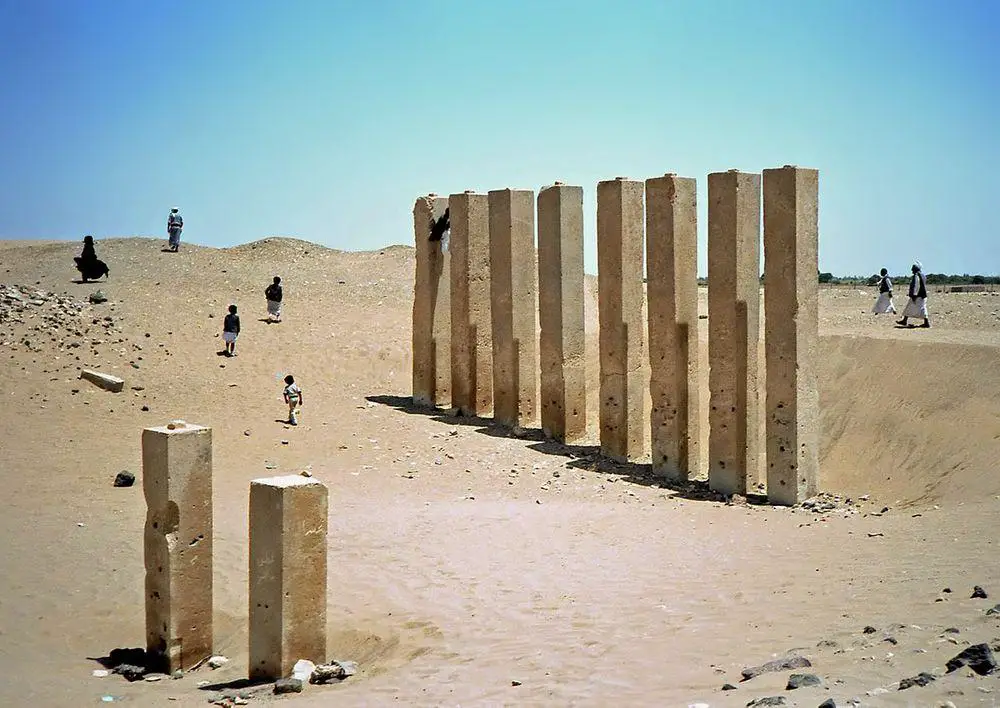
Al-Mahwit tombs
Al Mahwit
Large group (hundreds) of rock-cut tombs from the Paleolithic age, with embalmed mummies and relics.
Architecture wonders
Old City of Sana’a
Sana’a
An impressive display of the unique Yemeni urban planning and architecture. Sana’a is founded before 500 BC and there are buildings that are more than 1,400 years old. The city walls are 9 – 14 m tall, the old city contains more than 100 mosques and 6,500 houses. Most of the houses are highrise buildings and are ornamented.
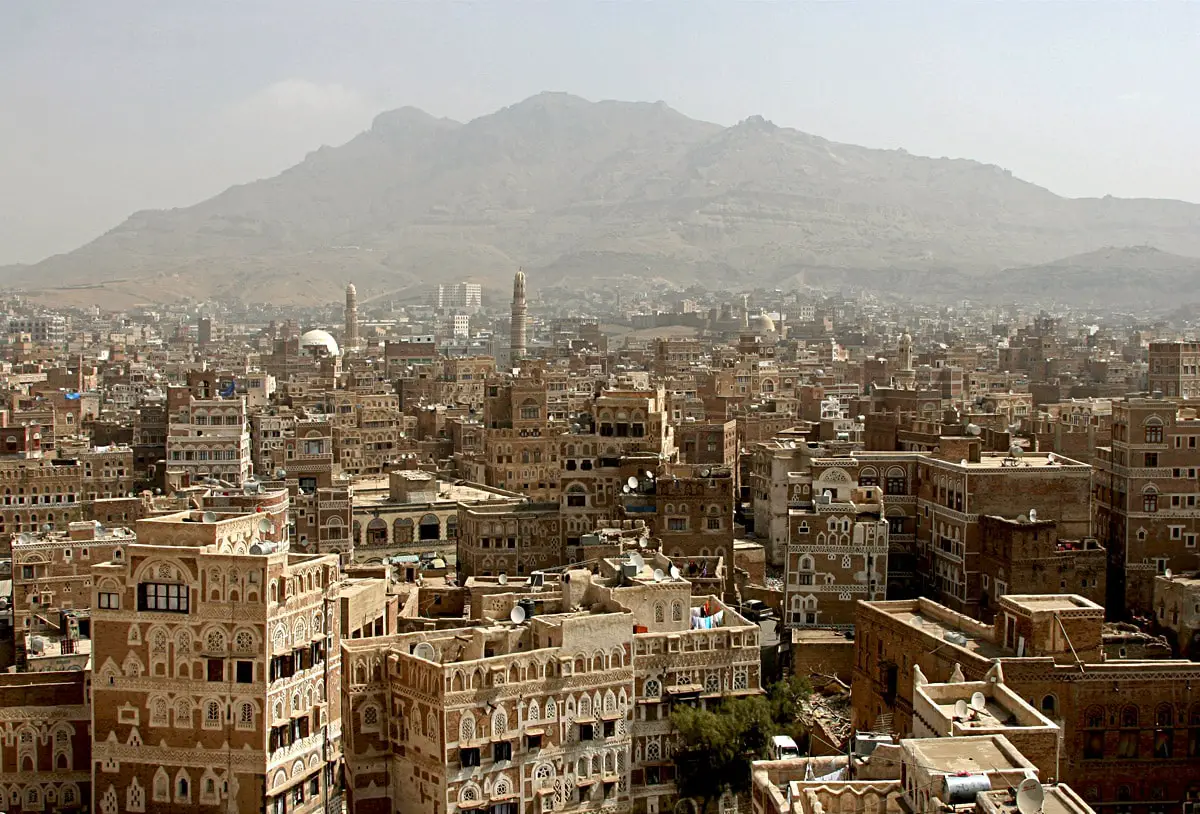
Shibam
Hadramaut
Unique, fortified city. Shibam is an old city, first mentioned in the 3rd century AD. This densely built city has some 500 tower houses, each rising 5 to 11 stories (more than 30 m) high. Most houses have been built since the 16th century. The city is enclosed by a wall.
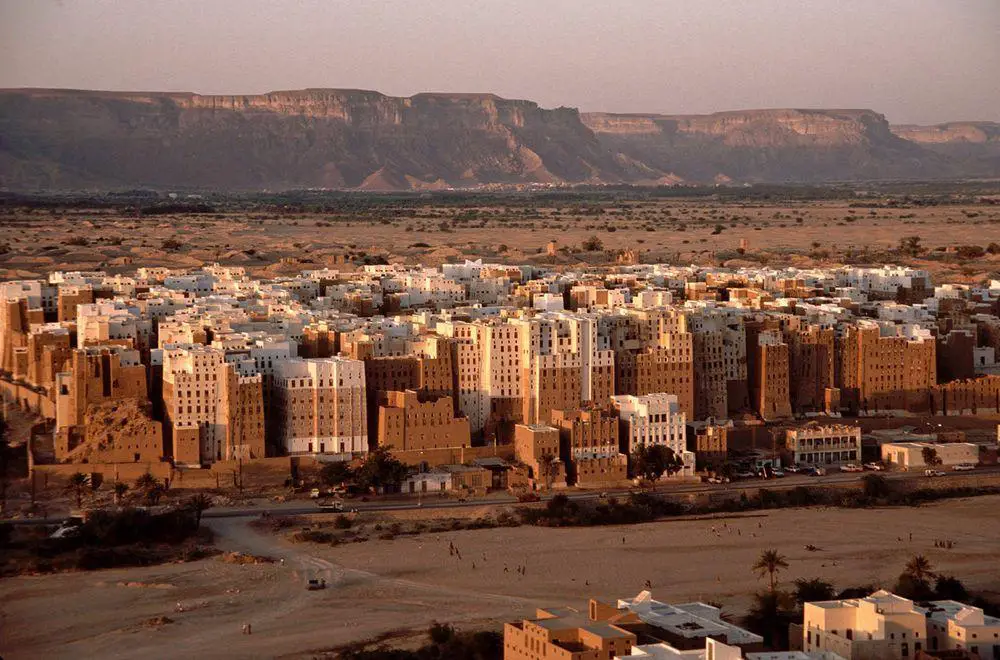
Thula
Dhamar
Exceptionally well preserved medieval town, one of the most beautiful ones in Yemen. The town was founded in the Himyarite period (the 1st century BC – 6th century AD), it is surrounded by nearly intact, 2 km long city walls that are 5 – 7 m tall. City has some 600 well-preserved medieval houses that form dense clusters with narrow streets.
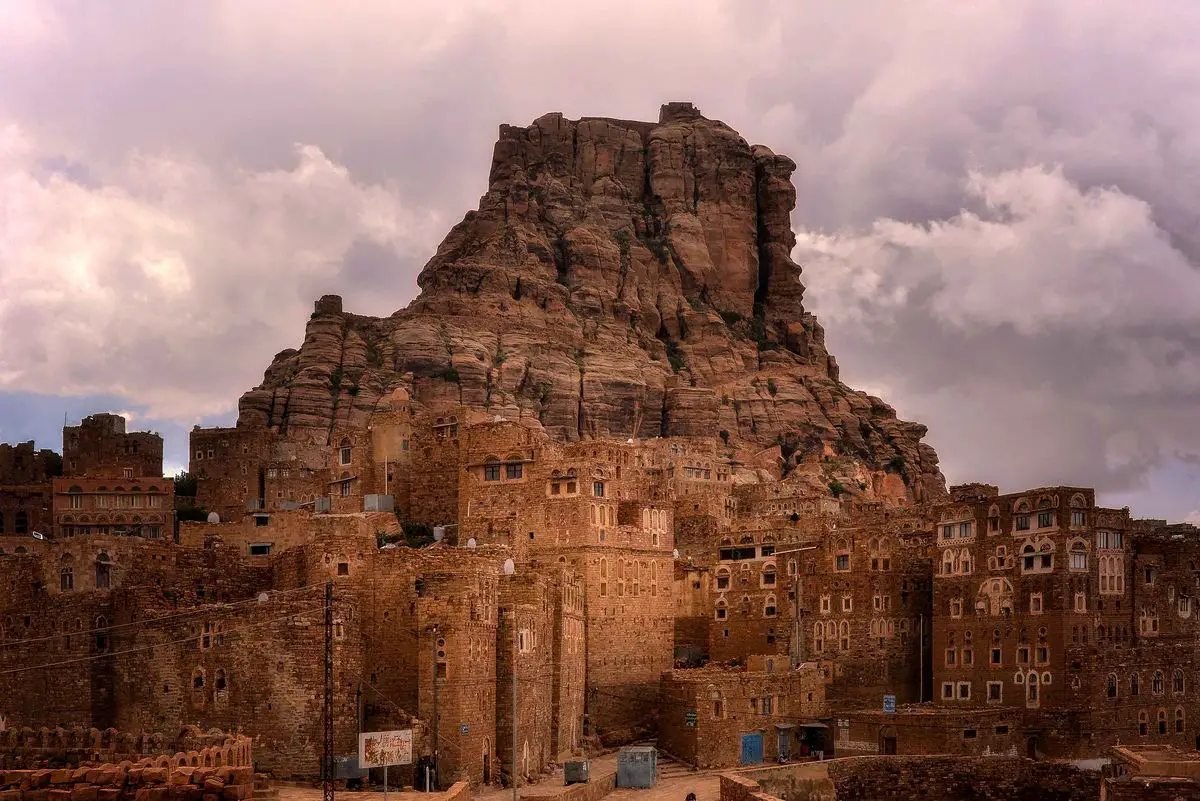
Zabid
Al Hudaydah
The former capital of Yemen, an outstanding medieval center of learning. Founded before the 7th century AD, flourished in the 13th – 15th century. Four gates remain from the former fortification walls. The city contains a multitude of ornate buildings including 86 mosques.
Al Hajjarah
Sana’a
Fortified medieval village perched on a cliff in the Haraz Mountains, built in the 12th century. The ornate houses are built over an abyss and look very impressive.
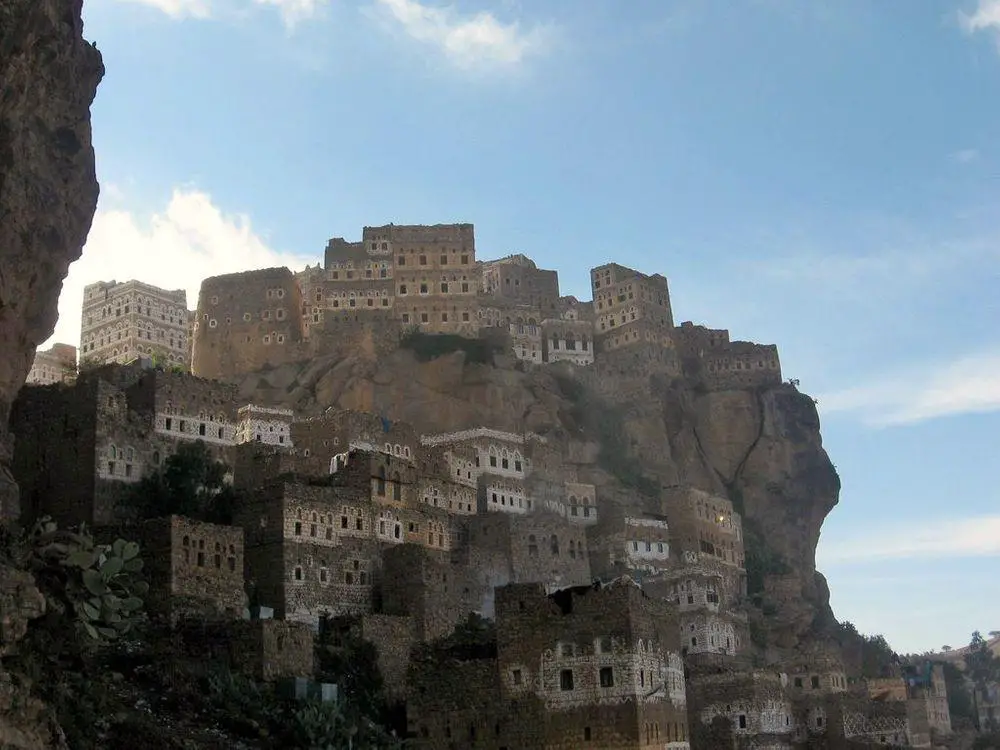
Jibla
Ibb
Mountain city: an ancient capital that flourished in the 11th – 12th centuries. The beautiful, well preserved city forms a harmonious whole with the surrounding agrarian landscape. The steep streets of Jibla are nearly unusable for cars. Houses are adorned with stucco reliefs, and in the city are beautiful mosques, the Palace of Queen with 365 rooms, medieval aqueduct.
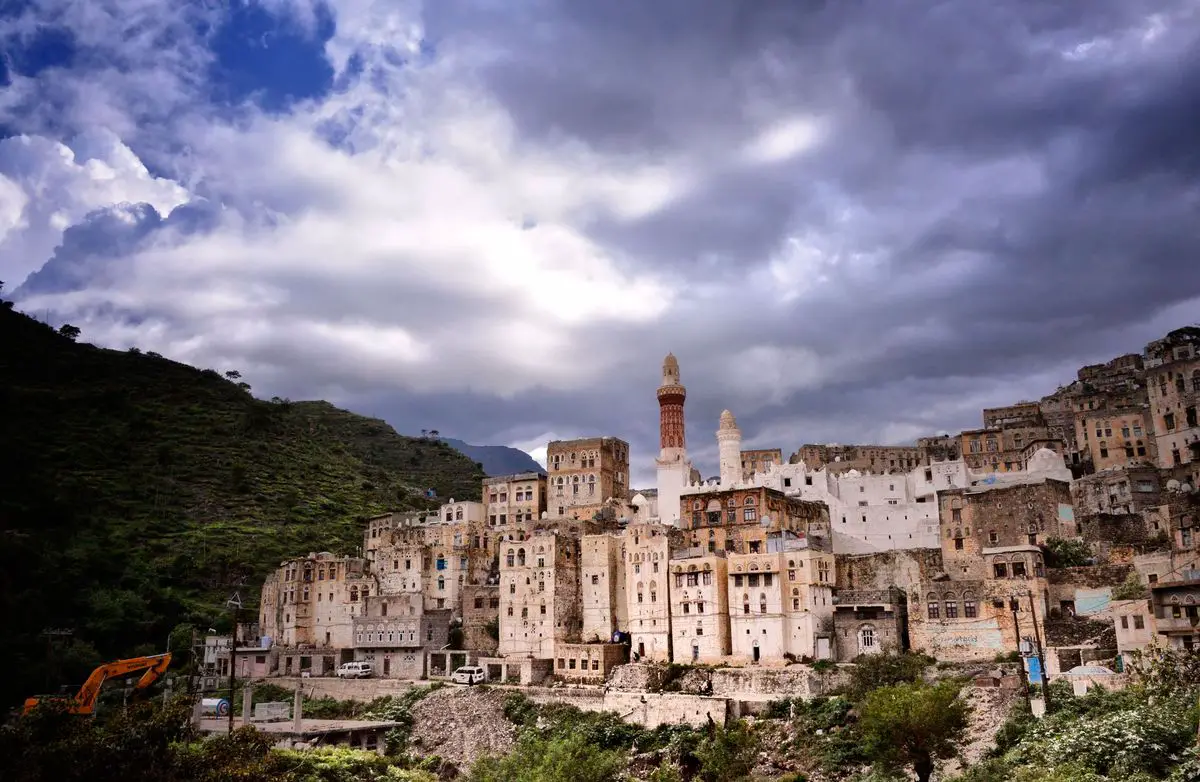
Great Mosque of Sana’a (Jami’ al-Kabir)
Amanat Al-Asemah
One of the oldest mosques It is possible that it was built in the 7th century AD, most likely during the lifetime of Muhammad. Interior structures have Byzantine architectural features. Site of great historical importance.
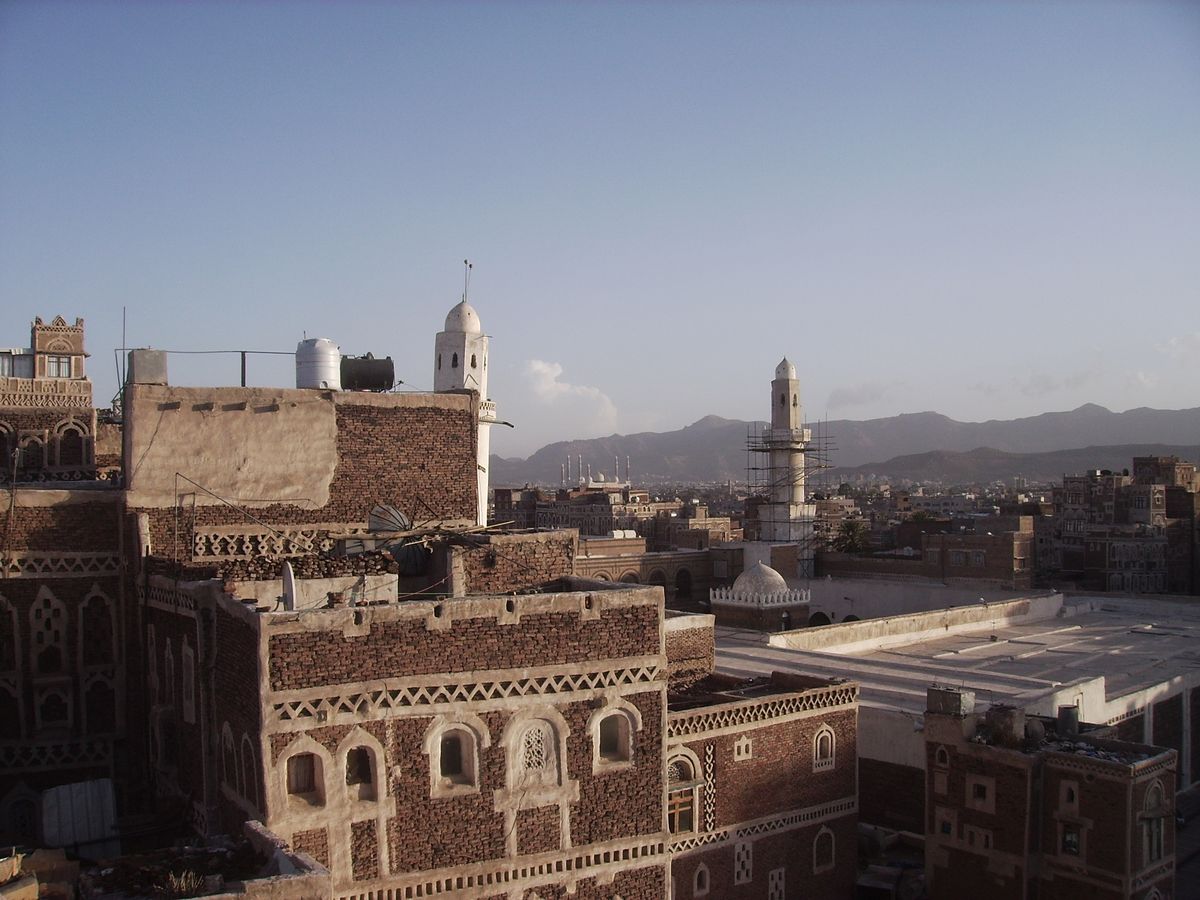
Old City of Ta’izz
Ta’izz
The former capital of Yemen in the 12th – 14th century. The historical core part of the city has been preserved comparatively well and here are found many old, ornate buildings.
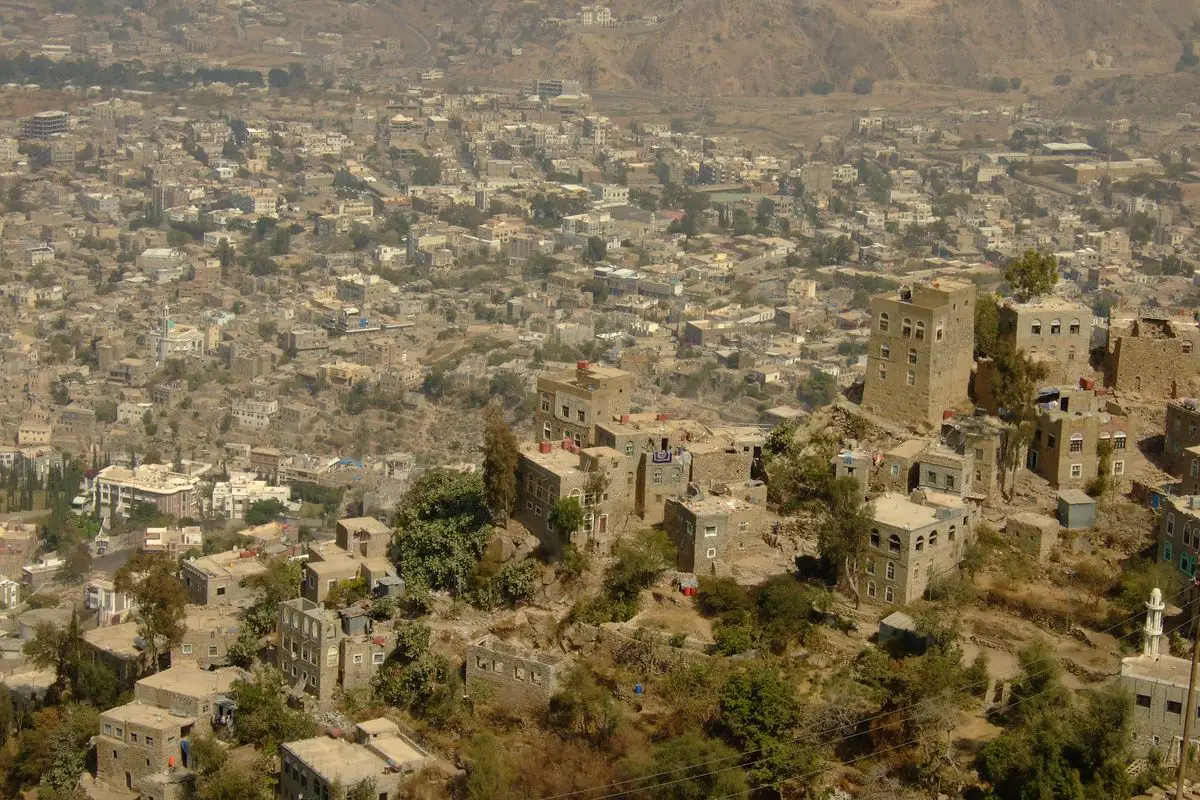
Great Mosque of Zabid
Al Hudaydah
A very old mosque, constructed in 820 AD. The central mosque of a once very important center of teaching.
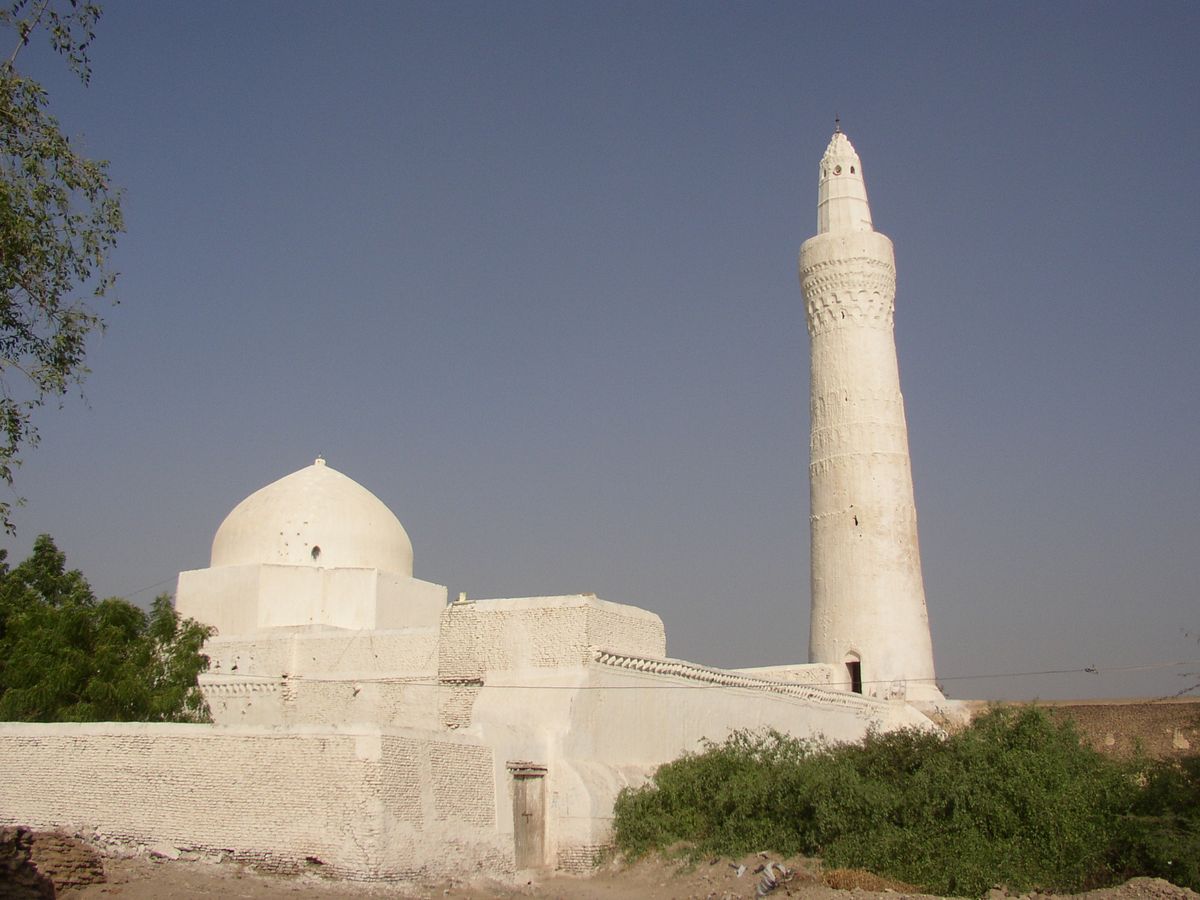
Al-Amiriya mosque
Al Bayda’
One of the most ornate mosques in this region, constructed in 1504. This large structure is rectangular, adorned with six large domes. Especially impressive are the painted frescoes inside – geometric and floral motifs of exceptionally high quality.
Shahara Bridge
Amran
An old and impressive bridge that was built over some 300 m deep canyon in the 17th century.
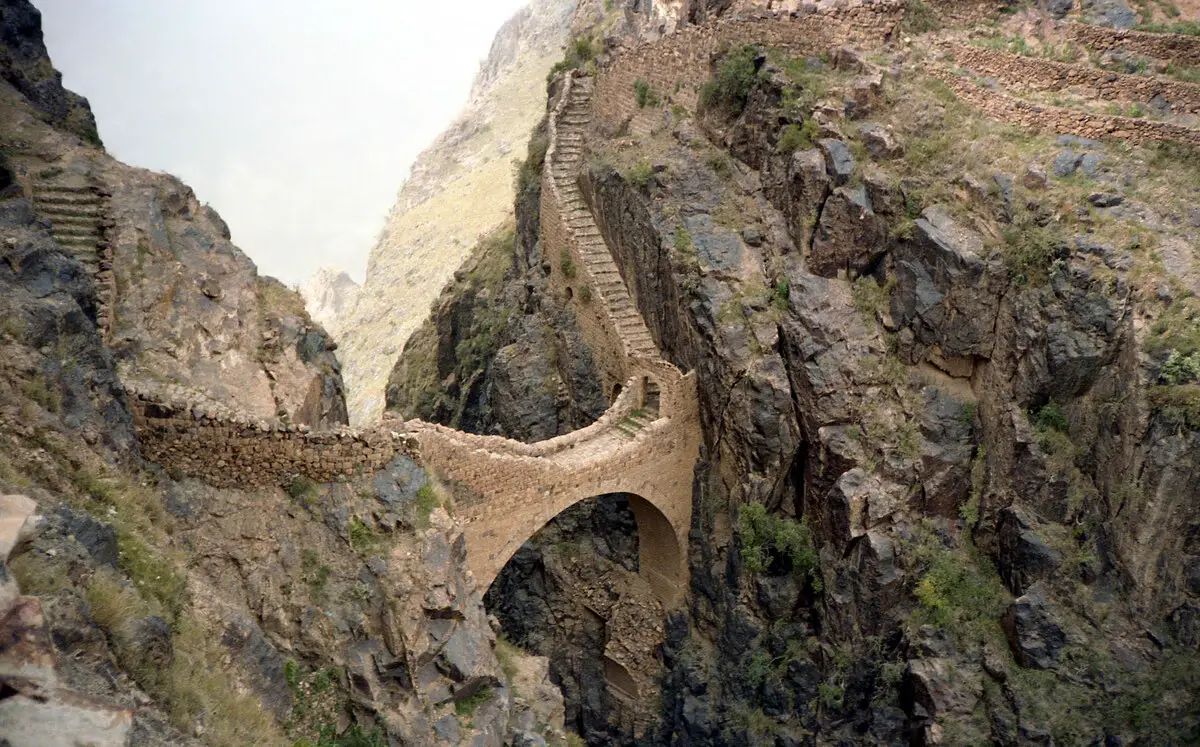
Ta’izz Governor’s Palace
Ta’izz
A historical palace that is perched on a 450 m tall hill above the city center.
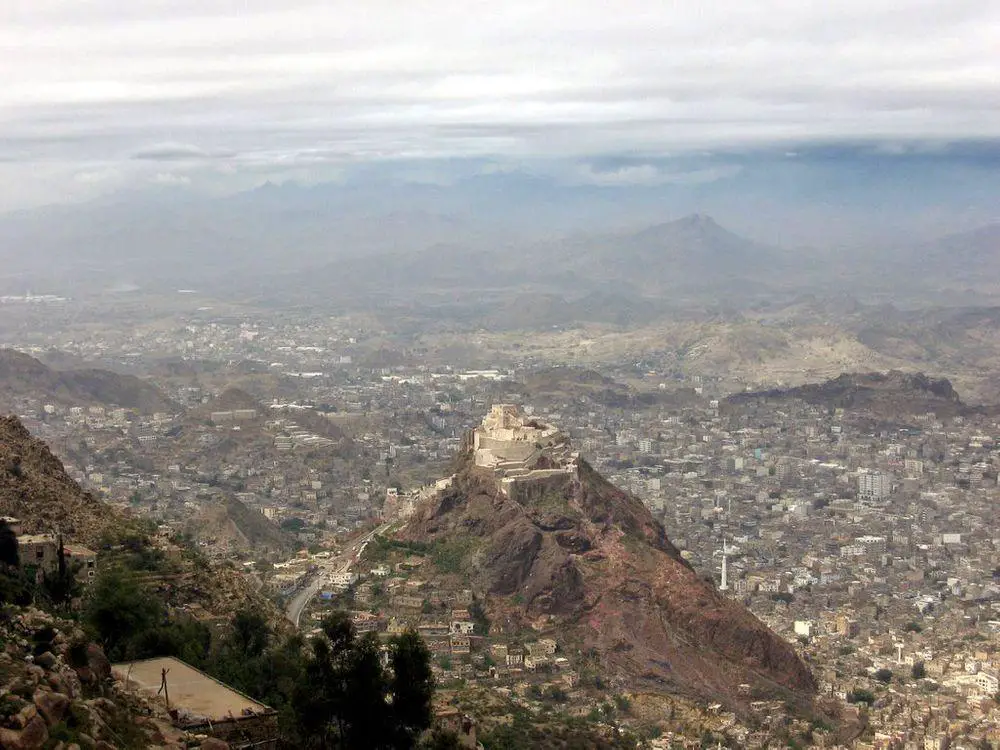
Al-Khuraybah
Hadramaut
A picturesque town with traditional Yemenese mud houses. The town is located at the bottom of the impressive Wadi Doan canyon.
Sa’dah
Sada
A well-preserved medieval city, founded in the 9th century. The city was the center of Zaydism – a school of Muslim thought. The city is enclosed with fortification walls – an earthen rampart that is 3 km long and 4 m wide, with 52 watchtowers and 16 gates. Here are found 14 medieval mosques that were built in the 10th – 16th century. Near the city is a large and ancient Zaydite cemetery with an extensive collection of richly ornamented steles.
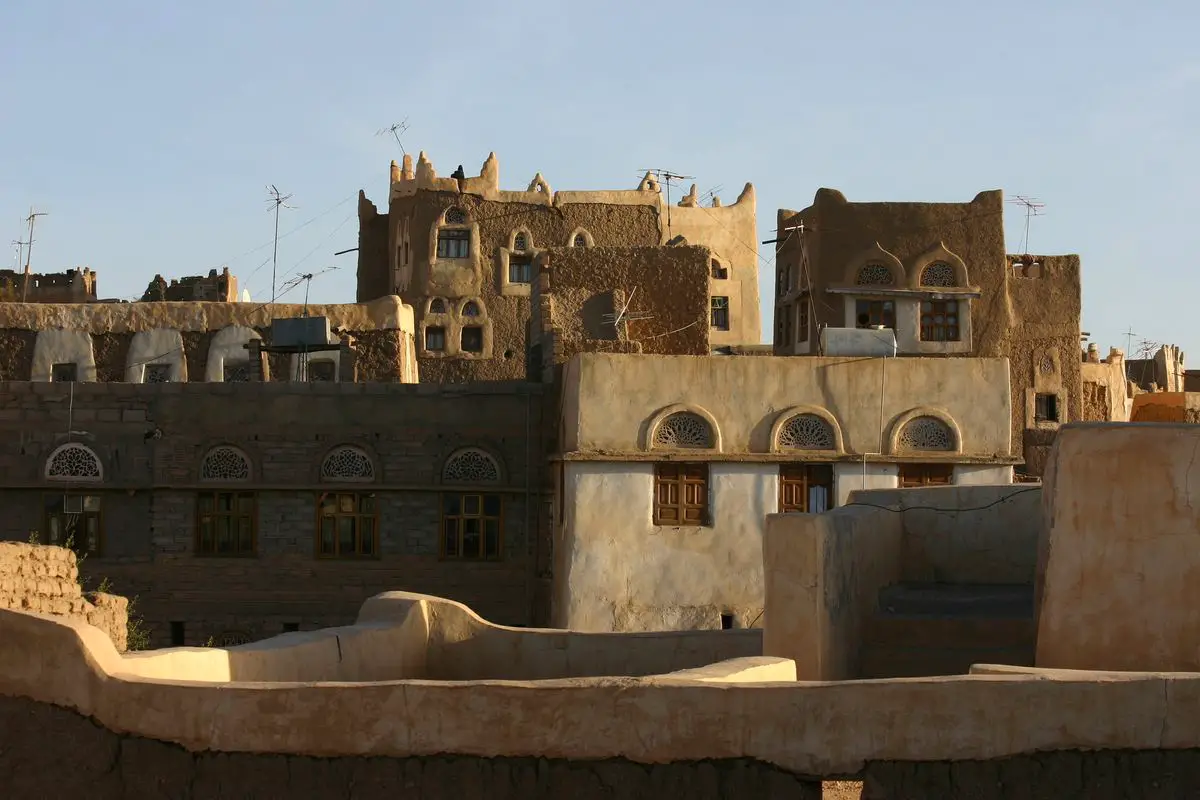
Al Muhdhar Mosque in Tarim
Hadramaut
This mosque has a very impressive and ornate, 53 m tall minaret that was built in 1914.
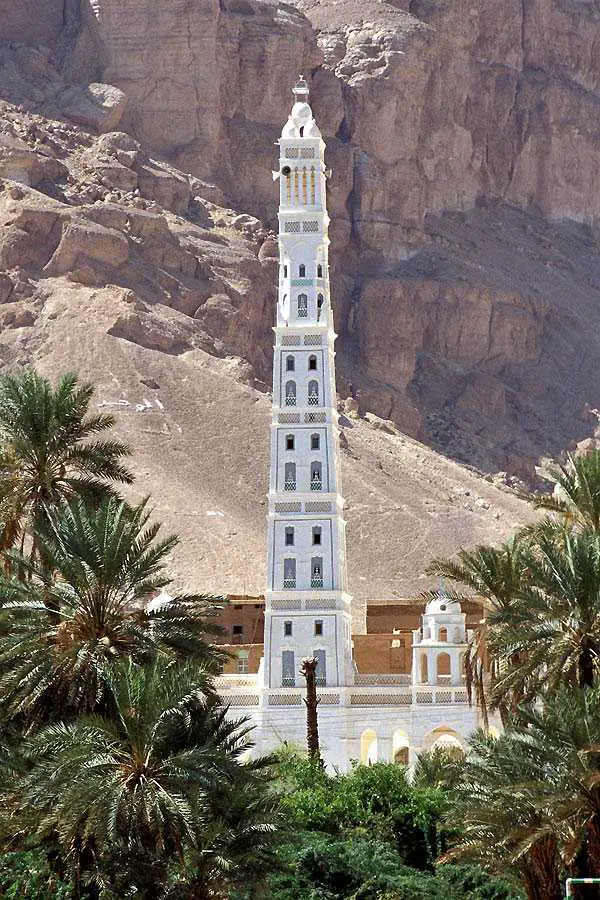
 Recommended books
Recommended books
Yemen: The Unknown Arabia
A country long regarded by classical geographers as a fabulous land where flying serpents guarded sacred incense groves, while medieval Arab visitors told tales of disappearing islands and menstruating mountains. Our current ideas of this country at the southern tip of the Arabian Peninsula have been hijacked by images of terrorist strongholds, drone attacks, and diplomatic tensions. But, as Mackintosh-Smith reminds us in this newly updated book, there is another Arabia. Yemen may be a part of Arabia, but it is like no place on earth.
Yemen, A Photographic Journey
The staggering breadth and diversity of Yemen’s landscapes and peoples is not something easily conveyed. Here, in this remarkable celebration of his homeland, Mahmoud Al-Shaibani presents a breathtaking panorama that sweeps in the mountains and valleys, the plains and seas, and the myriad of different communities that live in this ancient land.

